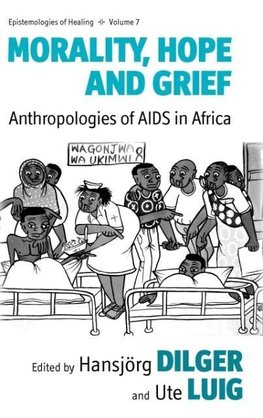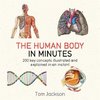
-
 Anglický jazyk
Anglický jazyk
Morality, Hope and Grief
Autor: Hansjörg Dilger
"We have come to expect that an emergent disease, once the initial hysteria it sparks has died down, will either be eradicated by money and medicine, or it will settle into the prosaic landscape of ordinary maladies with attendant routines, inconveniences,... Viac o knihe
Na objednávku
141.68 €
bežná cena: 161.00 €
O knihe
"We have come to expect that an emergent disease, once the initial hysteria it sparks has died down, will either be eradicated by money and medicine, or it will settle into the prosaic landscape of ordinary maladies with attendant routines, inconveniences, and bureaucratic exasperations. In Africa, AIDS has not followed either pathway. This outstanding collection of essays takes explicit aim at the tensions that this 'non-resolution' has generated in the world region that has felt the greatest impact of the disease: eastern and southern Africa. In these papers, we see vividly how the potential death warrant that AIDS presents to couples, households, children, has institutionalized new forms of social stigma and, at the same time, new levels of collective resilience and courage." · Caroline Bledsoe, Northwestern University
"This volume brings together some of the best, most thoughtful scholarship on AIDS in Africa. The essays are grounded in the troubling economic realities and intimate moral politics of daily life amid widespread existential angst. Together they offer novel insights into contemporary African social processes and experiences. Paying careful attention to the ways people create and tend to local moral worlds, Dilger and Luig have made a compelling, important book." · Julie Livingston, Rutgers University
"[This book offers] a set of reports on how a whole range of issues in daily social life in Africa have been shaped by the presence of AIDS. Even more powerfully, these chapters about experience in the age of AIDS tell us about how ordinary people have re-created their social and cultural worlds under the threat of a new disease, and also in the face of extremely challenging economic conditions...an extremely valuable book." · Steven Feierman, University of Pennsylvania
The HIV/AIDS epidemic in sub-Saharan Africa has been addressed and perceived predominantly through the broad perspectives of social and economic theories as well as public health and development discourses. This volume however, focuses on the micro-politics of illness, treatment and death in order to offer innovative insights into the complex processes that shape individual and community responses to AIDS. The contributions describe the dilemmas that families, communities and health professionals face and shed new light on the transformation of social and moral orders in African societies, which have been increasingly marginalised in the context of global modernity.
Hansjörg Dilger is Junior Professor of Social and Cultural Anthropology at the Freie Universität Berlin. Between 1995 and 2003, he carried out long-term fieldwork on AIDS and social relationships in rural and urban Tanzania. He is the author of Living with Aids. Illness, Death and Social Relationships in Africa. An Ethnography (Campus, 2005 in German). His recent research has focused on histories of social and religious inequality and the growing presence of Christian and Muslim schools in Dar es Salaam.
Ute Luig Ute Luig is Professor of Social Anthropology at the Freie Universität Berlin. She has conducted long-term field work in Uganda, Ivory Coast and Zambia on gender, AIDS, religion and modernity. She is co-editor of Spirit Possession, Modernity and Power in Africa (University of Wisconsin Press, 1999). At present she is involved in a project analysing the role of Buddhism in the reconciliation process in Cambodia after the civil war.
- Vydavateľstvo: Berghahn Books
- Rok vydania: 2010
- Formát: Hardback
- Rozmer: 240 x 161 mm
- Jazyk: Anglický jazyk
- ISBN: 9781845456634












